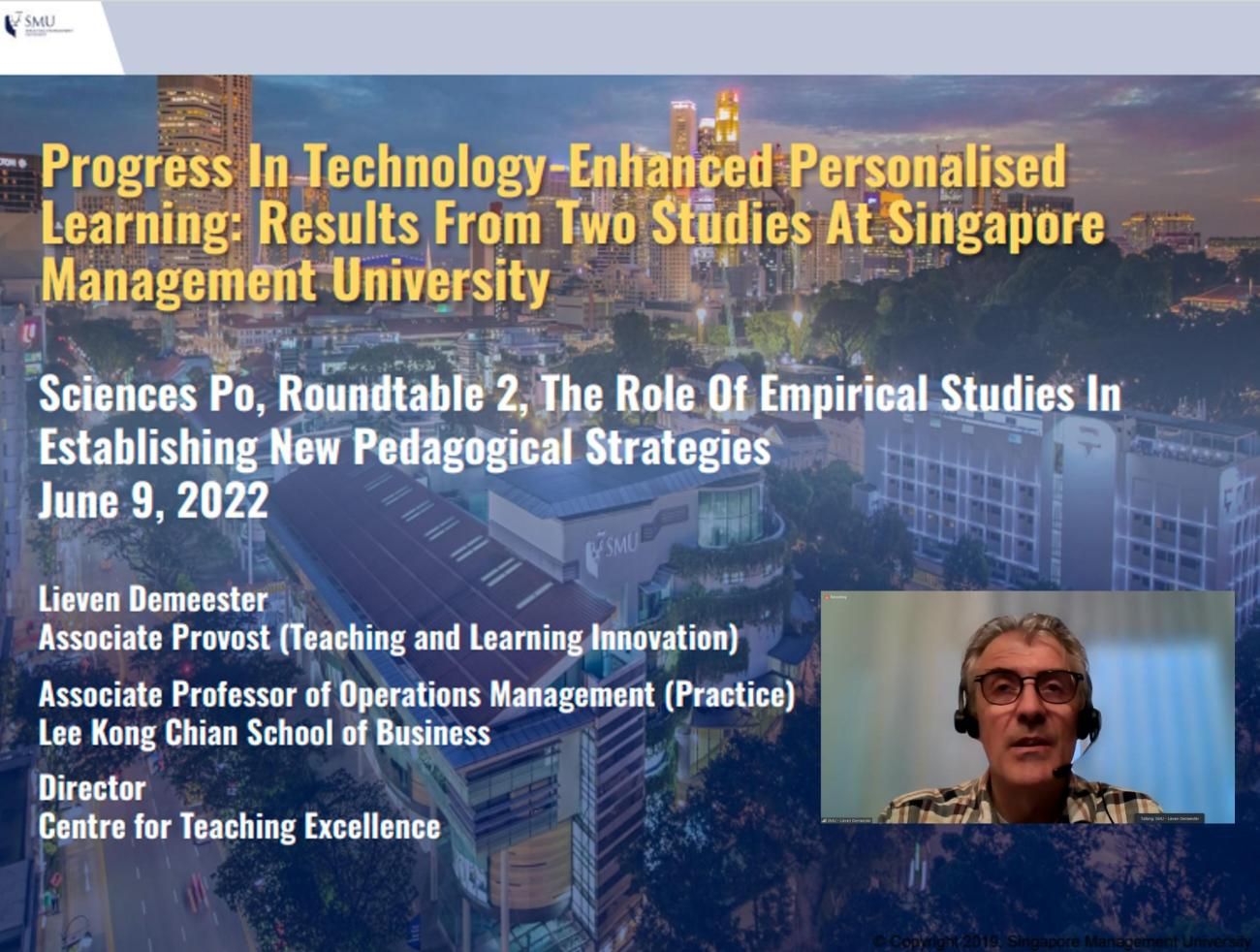
A systematic approach to measure learning outcomes and for instructors to provide performance feedback, would serve to help students to grow in a spectrum of personal competencies. These were the views shared by the Singapore Management University (SMU) at the Sciences Po International Teaching and Learning Workshop, which was conducted in hybrid format on 9 and 10 June 2022 in Paris, France as well as online. The workshop centred on the theme, "Rethinking Pedagogy in the Post-Covid Era".
“SMU views students as individuals, social beings and members of a larger community, and these three fundamental philosophical beliefs underpin the University’s pedagogical emphasis on personalised, collaborative and experiential learning experiences,” said Assoc Prof Lieven Demeester, Associate Provost (Teaching and Learning Innovation), and Director, Centre for Teaching Excellence at SMU. “Playing a central role in this strategy is technology, which is leveraged to enable and enhance these experiences.”
He was delivering a presentation on SMU’s pedagogical approach at the workshop, in line with SMU’s strategic priority area of “Growth in Asia”, where the University sought to offer a deep understanding of Asia’s economy, polity and society. He shared these insights on the opening day of the workshop, addressing fellow academics and experts in pedagogy.
Assoc Prof Demeester shared insights on the design and results from a study conducted by the University, where a systematic approach had been taken to measure learning outcomes. The study analysed how a provision in the system to let instructors provide performance feedback on these learning outcomes consistently, aided students to grow in a spectrum of personal competencies, such as critical thinking and collaboration skills.
He also elaborated on a separate study being conducted by SMU. This particular study held the objectives of better understanding the types of institutional support for teachers and learners that had proved effective in leading to more technology-enhanced personalised learning (TEPL) during the Covid-19 pandemic. Collaborating with SMU in this study were Mahidol University and Universiti Malaya – its two co-leads at the ASEAN University Network-TEPL Thematic Network.
SMU has been a regular participant at, and an active contributor to, the annual Sciences Po International Teaching and Learning Workshop since its inaugural edition in 2018. The Workshop seeks to bring leading international universities together to share and learn about innovations and experiences in the development and implementation of new pedagogies.
This year’s event also featured teaching and learning experts from other leading international higher education institutions, such as Harvard University, King’s College London, London School of Economics and Political Science, and Princeton University